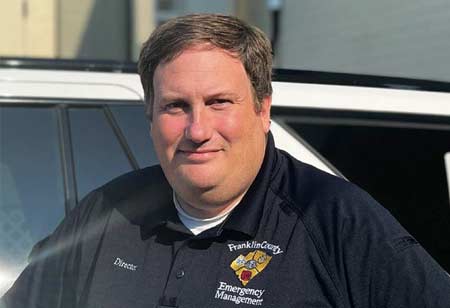

Thank you for Subscribing to Gov Business Review Weekly Brief

Nicholas’ fifteen years of emergency management experience have included seven declared emergencies, three NSSE’s, and having trained three thousand responders in various FEMA courses. He serves as the Director of Emergency Management in Franklin County, NC. Nicholas studied history at The American University and homeland security at Texas A&M University.
Through this article, Nicholas highlights the importance of valuing and effectively managing volunteers, who can be crucial in emergencies despite their lack of formal compensation. He highlights the need for thorough documentation and planning beyond immediate incidents to drive progress in emergency management. I don’t know how much longer I can call myself “young” (I’ve been in the field for 15 years), but it seems that only yesterday I was completing community emergency response team training in Washington, D.C. It was while volunteering with Serve DC, the Mayor’s Office on Volunteerism, that I found my passion for emergency response and helping people in crisis. It wasn’t long before I was managing a neighborhoodbased program that networked and trained volunteers. I worked with Kerry Payne, whom we lost all too soon. The Washington, D.C., Homeland Security Emergency Management Agency’s emergency operations center is named for him. He taught me valuable lessons in building partnerships and how to build trust with co-workers and allies. Being a volunteer and then leading volunteers taught me how passionate people can be about helping during a special event, public health emergency, or disaster. I’ve always said that, while it is harder to manage and inspire volunteers than it is to direct paid staff, we can’t discount volunteers’s passion and capabilities. We need to look at them as an army of potential that just needs some direction. We shouldn’t write them off. If we invest some time in providing the opportunity for them to learn and train with us in small ways, volunteers can be useful when the “big one” occurs. Their service will go far beyond anything we might expect. My short time with the Boston Public Health Commission taught me about documentation and developing action plans. In emergency management, we spend a lot of time telling our partners that “if we don’t write it down, it didn’t happen,” but how many of us really write it down? We tend to write only what is required. How often are we documenting how we manage our offices, programs, mission, vision, values, and the goals of our departments? Let’s really start looking at project management and goal development in how we plan for the distant future instead of going from incident to incident—to drive how we progress as an agency and profession. I didn’t feel like I was really becoming an emergency manager until I joined the South Carolina Emergency Management Division as a regional emergency manager. Trying to manage a positive relationship between six home rule counties and the state sometimes felt harder than going over Niagara Falls in a barrel. I was brand new to South Carolina and to state government, and I was being held accountable for mistakes made years before I got there. "I end every email and conversation with “Call me if you need me,” and we all must be ready to answer the call to help, because that call means someone is probably having the worst day of their lives." A goal we should have in emergency management is to grow partnerships and relationships. We can’t hold grudges because we never know where our next resource will need to come from. We say we drop all egos during disasters. We need to drop them before the disaster happens. We need to think beyond our jurisdictional borders: how can I make friends or at least not have enemies? Our after-action reports are where we need to leave all the headaches and heartache of an emergency and then move on. We love to say that no two emergencies are the same. So, let’s stop preventing progress because of past mistakes or personal conflicts. I’ve been in North Carolina for almost eight years, and so far, I’ve learned three things: 1) Attention to detail—we can’t afford to let things slip through the cracks and blame it on the emergency. We must learn where our gaps are so no one is left behind during response and recovery phases. 2) Help can come from anywhere. I spent five years working with a healthcare preparedness coalition, and it was amazing how many resources we could deploy when needed. Many organizations want to help and have the resources we as emergency managers need. We just need to learn who they are. And that brings me to 3) Don’t be afraid to ask for help—I’m still learning this. I don’t know it all. I can’t do it all alone. Emergency managers take pride in being the problem solvers, but we can’t solve every problem. Asking for help is not a sign of weakness but of resourcefulness. When I look at what the future holds for our profession, I see areas we need to work on, from what is being taught to future emergency managers in higher education to still having to battle with county/local leaders and local first responders about the value we bring every day and not just during impactful incidents. Emergency management has always transcended politics, and we need to start illustrating that if we hope to reach what it means to have a truly resilient community, we work every day to achieve.I agree We use cookies on this website to enhance your user experience. By clicking any link on this page you are giving your consent for us to set cookies. More info